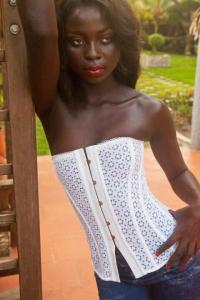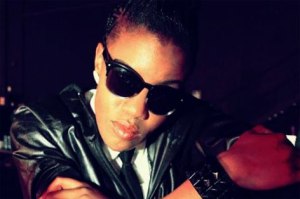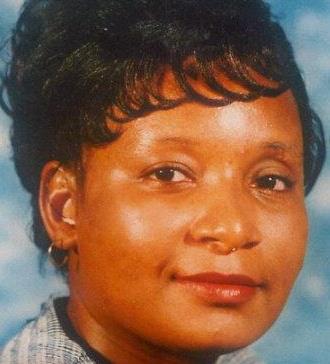Last week, the controversial topic of Brown women’s hair, was on pretty much everyone’s lips in South Africa and possibly across the globe (and most certainly on social networking platforms) thanks to the latest edition of investigative journalist Debora Patta’s programme, 3rd Degree which was “investigating” brown women’s hair styles and our alleged propensity to keep it anything but natural.
To begin with, I must highlight that I have misgivings on having a Caucasian woman attempt to tackle this issue. I have these misgivings, not because I believe that Caucasians should not have opinions and subsequently air said opinions on our hair but when it is done in the manner in which Patta did it, it comes across as patronising and condescending to have an “investigation” into the cause of this occurrence while simultaneously ignoring the real roots of what, in my opinion, is a form of self hatred on the part of the Brown woman and the Brown man. In addition to this, I would probably have been more comfortable with Patta’s latest insert if she had looked into the issue more broadly i.e. included an investigation into why Caucasian and even Asian women also go through similar lengths and pains to change their natural appearance because let’s face it, they do crazy and hella painful stuff to their hair too all in the name of beauty.
It goes without saying, if my Afro – textured hair isn’t a dead give away in itself, that I am strongly opposed to wigs, weaves and the texturising/ relaxing of hair by healthy brown women i.e. those not undergoing chemo therapy or experiencing balding. However, in spite of my aversion to it, I acknowledge that I have no right to dictate to anyone what they can or cannot do to feel “beautiful”.
As Afrikans we have always had our own versions of cosmetology and forms of beautification and to be fair, how does one determine what the limits of this vanity fuelled quest for ultimate beauty should be for an individual and should they claim the right to attempt to establish this determination? I do not have an answer for this neither do I wish to find one as that would translate to me finding one other way of controlling people, their bodies and how they choose to identify themselves. I do however wish to, through this article, highlight and explain, more specifically for those who do not believe that these trends bespeak a certain form of hatred and shame of their “Afrikanness”, why I believe that certain forms of the beautification of the brown woman have very racial, borne of colonialism and slavery, connotations and attachments.
Three years ago, I woke up on a Saturday morning and I realised that I had no recollection of what my hair looked like in its natural form. This was because I had been relaxing it from the time I was 13. As if that wasn’t bad enough, I got tired of being asked where I’d got my “weave” done and on one or two occasions being mistaken for another race i.e. mixed race/ coloured. This was not because my hair was exceptionally long as I had a tendency to cut it into a bob when I wanted to “try something new” but it was because of the texture of my hair which looked a lot finer and silkier than “normal” (whatever the hell normal is) Afro – textured hair and even when it had growth it never really showed as it tended to blend in with the relaxed tips. That Saturday morning I walked to the nearest salon and I literally had to beg the female hairdressers to shave my head. They remained steadfast in their refusal to heck away at it until the barber, not necessarily a bleeding heart or humanitarian but more of a savvy businessman, offered to do it for me. Fast forward to today I have a head of natural, albeit not very “kinky”, hair and I have never been happier, in spite of the sometimes hassle of managing Afro – textured hair as it grows longer. I love not only my natural hair, but the natural hair of all brown people. It looks and feels so beautiful I now cannot imagine why I laboured away at making it look as close as humanly possible to that of Caucasian or Asian women and why I, at some point, even took pride in its extra straightness and flowiness.
 I have never spotted a weave, even back then. That is where I always drew the line. I would however, very occasionally get synthetic braids and although I haven’t really had a full head of braids since the chop, I am not entirely against them as they are more similar to the various forms of hair adornments that women and men across the continent used to spot even before our colonisation except that they used strands of treated tree bark and various other forms of fabric. Historically, up until the European slave trade, and the height of the Arab Slave Trade, penetrated sub-Saharan Africa, we had invented diverse ways of styling afro-textured hair and our hairstyles were used to define status, or identity, in regards to age, ethnicity, wealth, social rank, marital status, religion, fertility, manhood, and even death. These adornments and styles, some of which resemble the modern day synthetic fibre, were not an attempt to assimilate another race but were a result of our own creativity in a bid to spruce ourselves up as it were.
I have never spotted a weave, even back then. That is where I always drew the line. I would however, very occasionally get synthetic braids and although I haven’t really had a full head of braids since the chop, I am not entirely against them as they are more similar to the various forms of hair adornments that women and men across the continent used to spot even before our colonisation except that they used strands of treated tree bark and various other forms of fabric. Historically, up until the European slave trade, and the height of the Arab Slave Trade, penetrated sub-Saharan Africa, we had invented diverse ways of styling afro-textured hair and our hairstyles were used to define status, or identity, in regards to age, ethnicity, wealth, social rank, marital status, religion, fertility, manhood, and even death. These adornments and styles, some of which resemble the modern day synthetic fibre, were not an attempt to assimilate another race but were a result of our own creativity in a bid to spruce ourselves up as it were.
This is the opposite of wigs, weaves and even the texturising/relaxing of Afrikan hair and bleaching it blonde. All these, practices that are not exclusive to Brown (Black) women but include mixed race women too. Women who are inclined to make use of any one or all of these different offerings of “beauty” have defended this by saying that they want to look, well, beautiful and these things afford them that but I cannot help but wonder if they really do not realise that they are indirectly and perhaps inadvertently saying that there is nothing beautiful about Afrikan hair. That they are saying that they do not feel beautiful until they have a Caucasian or Asian element attached to them? Brown women with relaxed hair are often very distressed when they get growth in their hair. They absolutely hate it and the very sight of it is ugly and upsets them. Put simply, they hate their natural hair so much that they will urgently “fix” it with a retouch.
Many people refuse to acknowledge or accept racial identity and how we as Brown people view ourselves and place ourselves on the proverbial food chain of life as a contributing factor to our desire to carry on what I believe to be a trend, now become a culture, borne out of our oppression. Afro – textured hair aka wool hair, aka nappy hair was seen as “something bad that needed to be fixed” and to some extent it is still seen as such but now it is us ourselves who think that. During the times of slavery (and colonialism here in Afrika), Brown people were overloaded with the suggestion that straight hair was more acceptable than natural, kinky/curly hair textures such that slaves and “freedmen” began exploring solutions for straightening, or relaxing, their tresses in order to thrive, or merely to avoid mistreatment and legal and social discrimination.
Hair straightening is deeply rooted in colonialism and slavery with its foundations being a bid to make one more like the “master” and automatically gaining superiority over the other “backward” and “lesser” Brown people therefore attaining a social upgrade by physically bringing yourself closer to the “superior” being. Also it was an attempt at being more acceptable and easier on the eye for the “master” who considered us savages not only because of our cultures but because we were what they considered an “eye sore” physically.
Sadly, this desperate need to subscribe to the Eurocentric standards of beauty does not end at our hair but even goes as far as skin lightening and skin bleaching. We have over the last several generations, seen the emergence of a kind of Brown person who equates light skin to beauty and to me that is the greatest tragedy and the most blatant symbol of our continued enslavement.
“too dark… Needs to tone her skin a little… Pretty though!!”
That was the comment on the photo above that was posted by a brown woman on the Shadders page on facebook. It is tragic that people think that way. What people do not realize is that the emancipation of the Afrikan neither starts nor ends at political & economic emancipation but should find its foundations in the emancipation of the mind starting with readjusting our view of ourselves.
Interestingly and possibly sadly enough, we see today a paradigm shift, with Caucasians being more appreciative and being the “defenders” of natural Afrikan features and recognising our natural hair and dark complexion (for those who are more darker skinned) for the beautiful attributes that they are. From my own personal observations, you will find Caucasian parents to a Brown child leave their child’s hair natural and Brown parents be the ones to straighten, relax and beweave their children and as in one horror incident I saw on facebook not too long ago, for children as young as 3months old.
Am I saying that Caucasians or Asians are not beautiful? No way! But I am saying that we are as equally beautiful and this is not in spite of but because of our “nappy” hair. People are more interested in changing Caucasians’ perceptions of us; trying to force them to like us and respect us in an attempt to “empower” ourselves and yet it is our perception of ourselves we should be focusing on. Their respect of and love for us does not matter if we cannot respect and love ourselves first. That said, perhaps if Patta’s expose had tackled the issue from this perspective I would find it less offensive and perhaps if my fellow sisters acknowledge this element of latent internalised racism/self hatred within ourselves and we start interrogating the source and the reasons behind our perceptions of beauty can we truly start addressing the issue of identity and empowerment. Until then, the brown woman can never truly claim empowerment and independence and she will instead continue to be a modern day “freak show” attraction for journalists like Patta who like to poke and prod at the fascinating species that is the brown person; a little reminiscent of 19th century Europe to be honest; and to be dressed up and dressed down to suit the whims of the Eurocentric elite.
© Doreen Victoria Gaura/ Colouredraysofgrey, 2012











